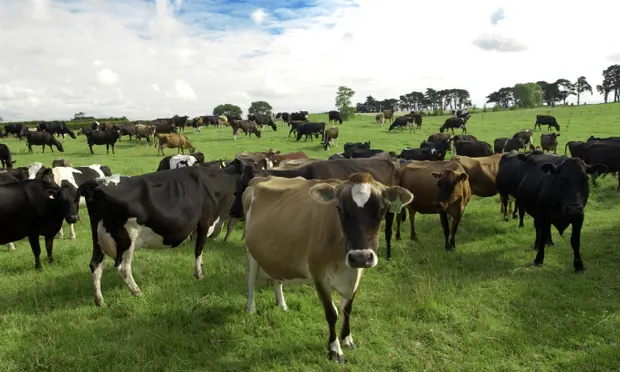Latest reports show that New Zealand is set to introduce a scheme that will require farmers to pay for their agricultural greenhouse gas emissions, including the methane belched out by cows and nitrous oxide emitted through livestock urine.
Standing behind a podium of hay bales at a North Island dairy farm, Prime minister, Jacinda Ardern and three of her ministers unveiled the government’s plan for putting a price on the climate cost of farming.
The emissions created by the digestive systems of New Zealand’s 6.3m cows are said to be among the country’s biggest environmental problems. The plan includes taxing both methanes emitted by livestock and nitrous oxide emitted mostly from fertiliser-rich urine – which together contribute to around half of New Zealand’s overall emissions output.
Read also: France moves to reduce energy consumption
In his remarks, Ardern said that the proposal, as it stands, means New Zealand’s farmers are set to be the first in the world to reduce agricultural emissions, adding that it would give the country’s biggest export market (worth $46.4bn a year) a competitive advantage globally, while putting the country on track to meet its 2030 methane reduction target.
“No other country in the world has yet developed a system for pricing and reducing agricultural emissions, so our farmers are set to benefit from being first movers,” Ardern was quoted as saying. “Cutting emissions will help New Zealand farmers to not only be the best in the world but the best for the world.”
The latest plan is said to have arisen out of the He Waka Eke Noa scheme – a partnership between farming leaders, Māori and government which was created in 2019 following calls from the farming sector to price greenhouse gas emissions at farm level, rather than forcing farmers into the separate Emissions Trading Scheme, which they criticised as being a blunt tool to calculate agricultural emissions.
The New Zealand government has since accepted most of the recommendations from the partnership and incorporated feedback from the Climate Change Commission. However, it rejected a proposal from farmers that they play a significant role in setting their own emissions prices.
By 2025, farmers who meet the threshold for herd size and fertiliser use will be required to pay a levy the government will set every one to three years, on advice from the Climate Change Commission and farmers under the proposed plan.
Story was adapted from the Guardian.
